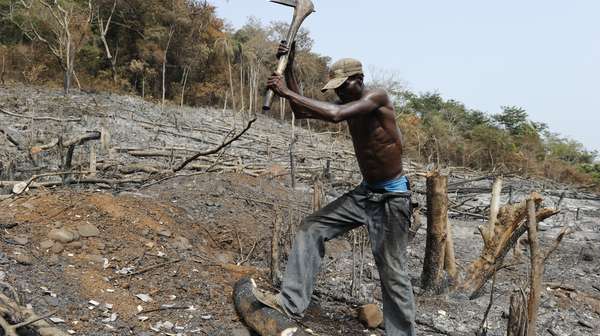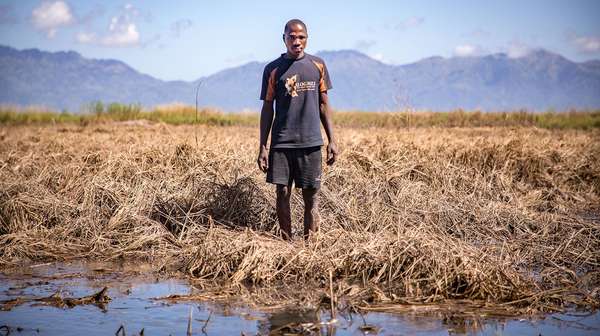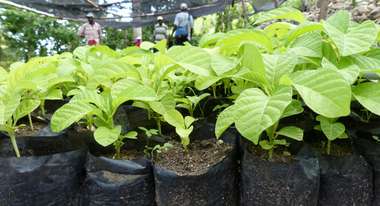The effects of climate change are a central cause of hunger, malnutrition, and poverty.
COP28: More shadow than light in the Arabian desert
The 28th UN Climate Change Conference (COP28) has come to an end and the results are sobering. Michael Kühn, climate expert at Welthungerhilfe, gives his assessment.
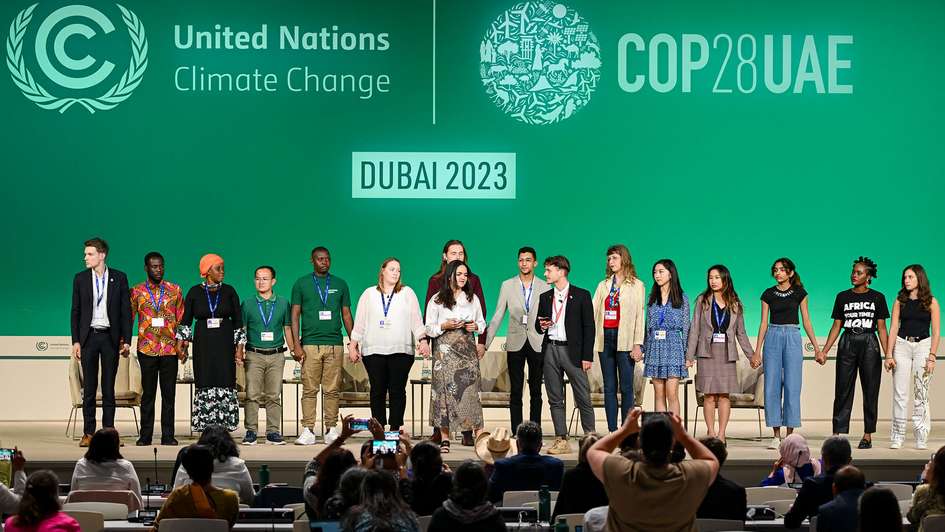
The UN Climate Change Conference COP28 in Dubai produced inadequate results. The consensus-based UN process is not to blame. The blame lies with the states and the interference of the fossil fuel industries. They too often put their economic interests above those of the international community and its most vulnerable members.
For the people affected by hunger, poverty and extreme weather events in the global South, the outcome is once again too little, too slow and, in the worst case, deadly.
Phasing out fossil fuels not mentioned in COP28 agreement
When the presidency of the COP28 climate conference takes place in an oil-exporting country that owes its prosperity exclusively to the sale of fossil fuels, we should not be surprised if it tries to hold on to its business model. The declaration of an end to the fossil fuel era, as hoped for and expected by many, does not appear in the final agreement of COP28 in Dubai. Instead, we get a promise that this will come in the future.
Scientific reports constantly remind us how far humanity is from meeting the 1.5°C target agreed in Paris. But these do not help either. There will be grave consequences from the continued use of oil, coal and gas for the most vulnerable part of the world's population, which is generally poor, suffers from hunger and is often hit by disasters.
The text states that it recognizes "the need for deep, rapid and sustained reductions of greenhouse gas emissions in line with the 1.5°C pathway and calls on Parties to contribute to the following global efforts on a national basis, taking into account the Paris Agreement and their different national circumstances, pathways and approaches". After all, the aim is to triple global renewable energy capacity and double energy efficiency by 2030. States agreed only to move away from fossil fuels in energy systems to achieve net-zero emissions by 2050, in line with scientific findings.
This agreement means nothing other than phasing out emissions – not fossil fuels. Industries can continue to use these fuels with emission-free and low-emission technologies such as carbon capture, utilization and storage. This is not what the EU, Germany and civil society had in mind and must be interpreted as a concession to the oil-exporting countries.
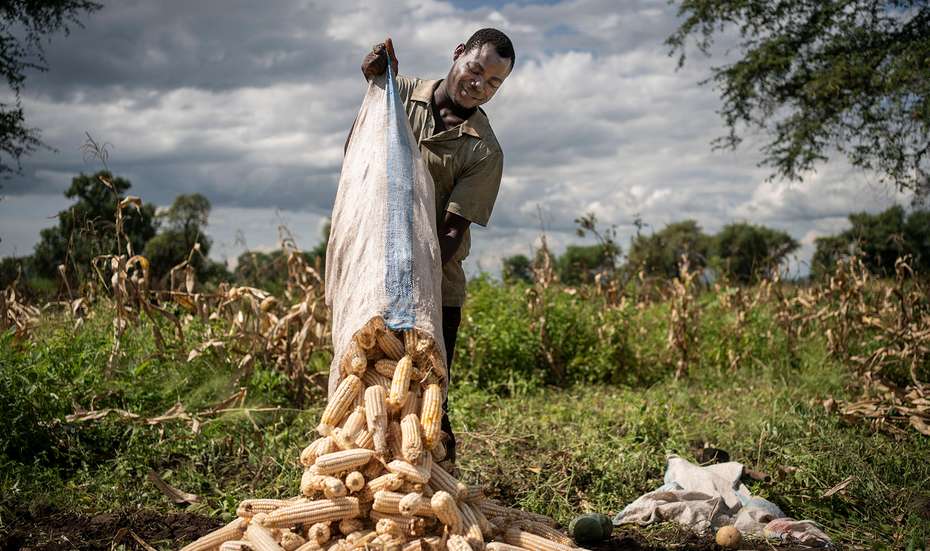
Fatal signal for the transformation of food systems
States discussed proposals that would make a complete phase-out of fossil fuels possible for all countries; for example, a phase-out at different speeds to enable lower-income countries, in particular, to develop and progress using their resources. In addition to expanding renewable energy use, this would also allow the use of gas, oil and coal during the transition. However, industrialized and large emerging countries would not have had these same concessions.
The private sector will also understand the signals from Dubai. It can still rely on energy generation from oil and gas. This is also a fatal signal to those involved in the transformation of food systems. The switch to environmentally friendly and greenhouse gas-free forms of energy is no longer mandatory. The text merely recognizes that "ensuring food security and ending hunger and the particular vulnerability of food production systems to the adverse effects of climate change" should be a priority.

It remains largely unclear what role food systems will play in countries' climate protection plans in the future.
Michael Kühn Climate expert at WHHMoreover, the term "food" only appears three times in both the stocktaking chapter and the adaptation text. Here, too, civil society had expected more. It remains largely unclear what role food systems - i.e. the way in which we grow, process, store, transport and consume food - will play in countries' climate protection plans in the future.
Nevertheless, there have been initiatives outside the negotiations that have dealt with the connection between food security, food systems and climate change. These included the COP presidency's declaration on sustainable agriculture, resilient food systems and climate protection, which was adopted by 158 countries. Or the "net zero" food security plan presented by the FAO with the aim of complying with the 1.5 degree limit. Nevertheless, the topic has arrived in international climate policy.
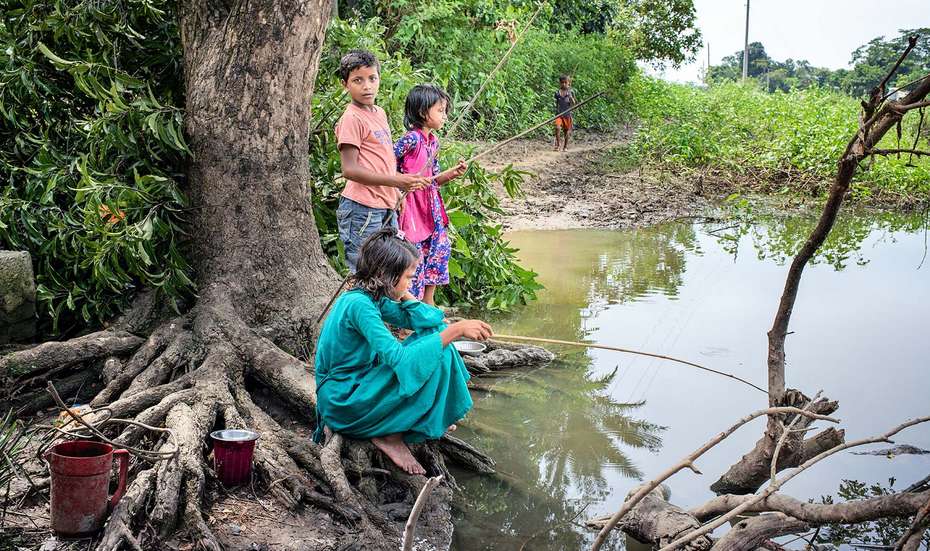
States make no significant progress on global climate adaptation goal
Act and intervene based on forecasts and predictions before crises and disasters lead to hunger, destruction and death.
Adaptation has traditionally been a focus of lower-income countries, as they are most affected by the impacts of climate change and are rarely in a position to respond adequately. They call for clear, time-limited targets for specific adaptation measures such as early warning systems or adequate water supply, and more support from higher-income countries, including financial resources.
The resistance of wealthier countries, led by the United States, to concrete targets for a global adaptation goal and insufficient funding for adaptation, has prevented significant progress on the international goal. However, for many poorer countries constantly dealing with droughts and floods and cannot adequately prepare for these disasters, an ambitious global adaptation target is a matter of life or death.
A major dilemma reflected in the final agreement remains the insufficient means of implementation that the countries need for their climate protection ambitions, technology and money. And if there are not enough of these, then support for phasing out fossil fuels will also dwindle.
Welthungerhilfe's expectations of the climate conference (COP28) in Dubai.
Climate fund must be further topped up
The United Arab Emirates and Germany provided a positive surprise on the first day by making USD 100 million each available for the fund for loss and damage, thus demonstrating that emerging countries should also be able to contribute to climate funds. However, the overall balance of climate financing is sobering.
In total, states have raised only USD 655 million for the lost and damage fund and only USD 165.2 million for the adaptation fund, whereas the target was double that amount. UN figures estimated the required funds to be over USD 500 billion by 2030 for damage and losses alone. Therefore, the lack of climate financing remains the critical credibility gap. According to the United Nations, ten to 18 times more money is needed for adaptation than is currently available.





